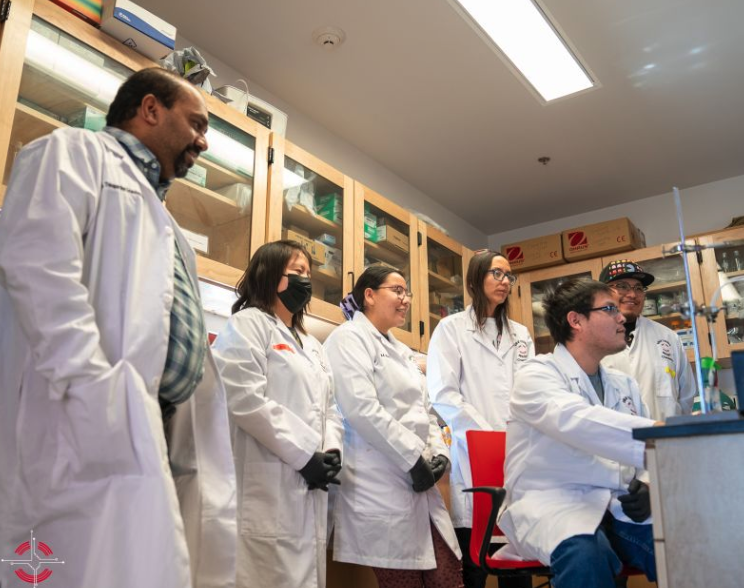A partnership that began in 2017 between Navajo Technical University (NTU) and the U.S. National Science Foundation Materials Research Science and Engineering Center at Harvard University is providing Navajo students with new opportunities to pursue advanced degrees in science and engineering while helping to address critical issues facing the Navajo Nation.
The partnership is supported through NSF’s Partnerships for Research and Education in Materials (PREM) program, which has been building productive collaborations between minority-serving institutions and research-intensive centers and facilities for nearly 20 years. Associate Professor of Chemistry Thiagarajan Soundappan at NTU leads their partnership with Harvard, which focuses on materials research topics with valuable applications for the Navajo community, like electrochemical sensors and microfluidics that can be used to detect groundwater contaminated with heavy metals from abandoned mines.
“There is no limit to the value that science can produce for a community when it is led by and for the people of that community,” says Germano Iannacchione, director of NSF’s Division of Materials Research. “NSF’s PREM program demonstrates how federal funding can help build new scientific capacity and lasting educational pathways in any community in America.”
Among the many indigenous students pursuing advanced research through the partnership is Robinson Tom, NTU’s first biology program graduate and the first NTU student ever admitted to a doctoral program at Harvard. Tom’s research on microfluidic techniques for developing targeted bio-insecticides demonstrates the program’s real-world applications, especially in the agricultural industry — a cornerstone of the Navajo Nation’s economic landscape.
